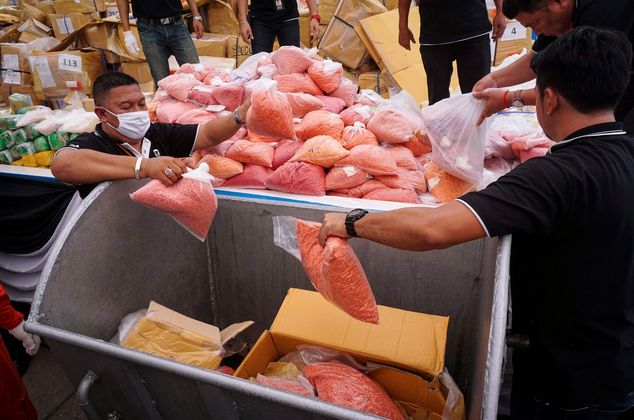“Everything starts at the community level.”

Weerachit Waranchitkun has always lived in Doi Tung – and in the same house for 55 years. He is the Chief Executive of the Mae Fah Luang subdistrict administrative authority, which comprises 19 villages in the mountainous region in the northern province of Thailand. He spoke to the GPDPD about the development of the once very poor region: For decades, the people of Doi Tung were economically dependent on opium poppy cultivation. Then the Mae Fah Luang Foundation implemented a development project according to the principles of Alternative Development.
GPDPD: When Her Royal Highness Princess Srinagarindra initiated the project in 1988, many different armed groups were active around here. Can you explain the situation?
Weerachit Waranchitkun: We all live here and have been cultivating the area for a long time. Initially, we were armed to protect ourselves and our ethnic group. But then, the Princess Mother with the Mae Fah Luang Foundation started to provide opportunities for a better and sustainable life. Most of us realised that no arms were needed for this cause and laid down the weapons. The Mae Fah Luang Foundation’s Alternative Development project focused on our needs and helped us to overcome poverty by providing job opportunities and education.
Did you believe in the project since day one?
In the beginning, not everyone had great trust in the project, but some people from our community started to cooperate and the project showed good results, especially for coffee growing. Not many had their own plantation, but they were hired as wage farmers, so they got paid and got to learn about coffee cultivation. Later on, they eventually became the plantation’s owner. An increasing number of people joined and started believing in the concept. Today, everyone is into it.
How is it possible to build trust among the communities?
First of all, it’s a long process, it can take years. The community leaders play an important role. They have to be able to lead and should go ahead as a good example for everyone.
What were concrete benefits resulting from the project?
There were different benefits complementing each other. Most importantly, we had the opportunity to cultivate legal alternatives to drug crops, such as coffee, and we were offered good job opportunities on the local plantations. Also, education was provided. In the past, the kids didn’t even go to school, nowadays a lot of them do their university degrees.
Does the younger, well-educated generation stay here in Doi Tung or do they leave the region?
Both, actually. While some stay in the area, others move to different places. Some kids in the village can speak four languages: Thai, English, Chinese and the local language. The language skills are door openers. They have possibilities we never had before and it’s up to them if they want to stay or go abroad.
For the Expert Group Meeting on Alternative Development participants from all over the world came to Doi Tung to learn from this project. What advice would you give them?
Everything has to start at the community level, the needs and challenges in the different communities should be evaluated before a project is being implemented. Once you identify the specific problems you will be able to find the adequate solution. Starting there, you can scale up to the rest of the country, reflecting the conditions in every region.



